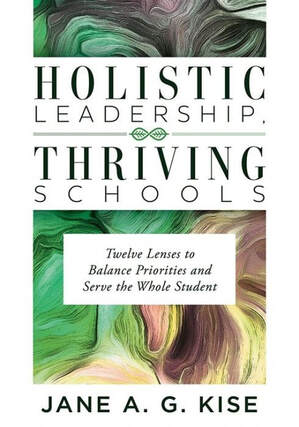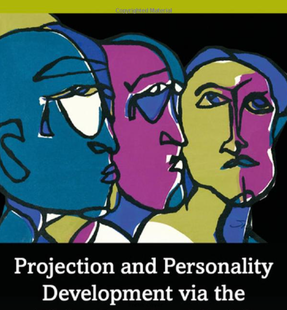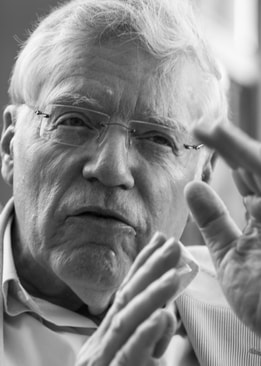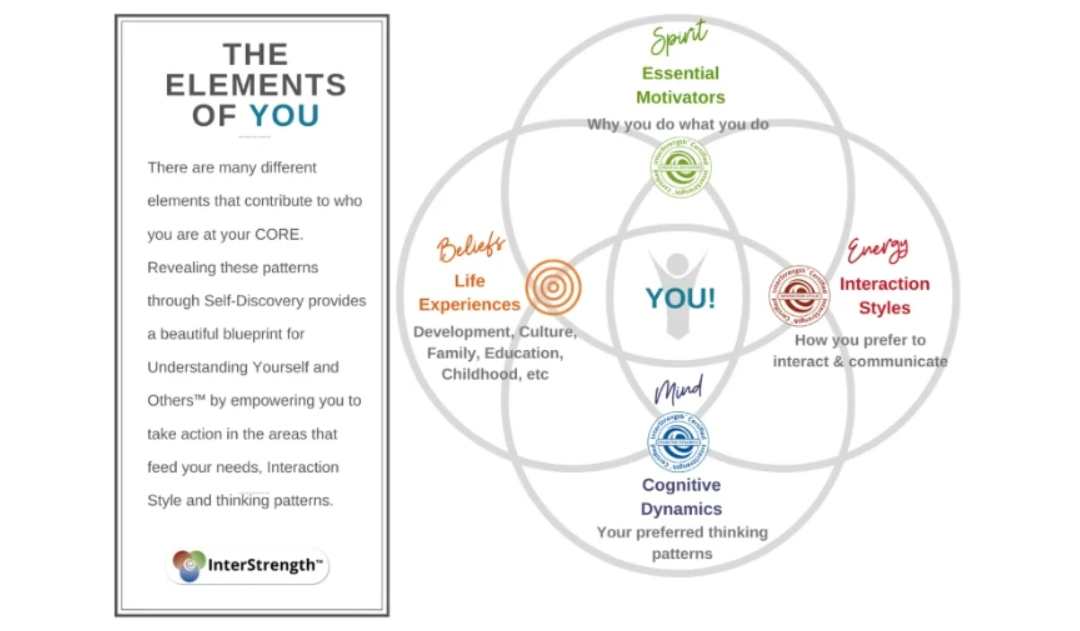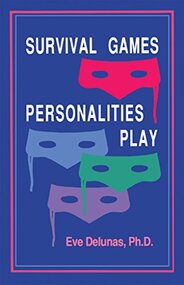|
The Sacramento Chapter of the Association for Psychological Type (SacAPT, formerly CCC-APT) is a chapter of the Association for Psychological Type International. Our members share an interest in psychological type, with some interested primarily in research and others in the practical application of type theory in everyday life. SacAPT members come from a variety of backgrounds and professions, with positions in business and industry, organizational development, religion, education, and counseling. We'd love to have you join us!
|
|

How Will Type as We Know It Be Seen in the Future:
Sharing your Knowledge in a Podcasting and YouTube World
Presented by Joel Mark Witt & Antonia Dodge
Saturday, April 29th, 2023
9:00 a.m. – 12:00 p.m. PDT
The internet is forcing type communities to change & grow… fast.
On one side of the type community we see a seasoned generation of type professionals who have spent years refining their knowledge & wisdom. On the other side are young people eager to express and share their newly discovered love of type on every major social media platform.
Young people are excited about type & want to talk about it on podcasts, YouTube videos, and Facebook posts. But often these new “influencers” are unaware that typology is a mature discipline with years of research, development, and commerce baked into its ethos.
How do we preserve what has come before while adapting to the changing new media landscape?
This program will be highly interactive. We hope to start a dialogue with two of the many pieces of the type community: type members and type influencers from social media platforms. Topics such as legitimacy and ways of participating and learning will happen but more importantly, you will come away with how very important and crucial the APTi community is viewed for the continuation of vitality and growth in the type world.
ABOUT THE PRESENTERS
Joel Mark Witt & Antonia Dodge presented at the APTi conference in February and at the AusAPT Conference in Melbourne Australia, and will present at the British APT conference on April 22. They are authors, podcasters, entrepreneurs, personal development coaches, and personality typology experts who have consulted with companies like Amazon, Zappos Oracle, American Express, CNN and many others.
Joel and Antonia also host the popular PersonalityHacker podcasts.
Visit https://www.personalityhacker.com/ to learn more.
Joel and Antonia are authors of Personality Hackers - Harness-the Power of Your Personality Type to Transform Your Work, Relationships, and Life.
Following registration for the program, participants will receive an email with information to join the virtual presentation on Zoom.
Sharing your Knowledge in a Podcasting and YouTube World
Presented by Joel Mark Witt & Antonia Dodge
Saturday, April 29th, 2023
9:00 a.m. – 12:00 p.m. PDT
The internet is forcing type communities to change & grow… fast.
On one side of the type community we see a seasoned generation of type professionals who have spent years refining their knowledge & wisdom. On the other side are young people eager to express and share their newly discovered love of type on every major social media platform.
Young people are excited about type & want to talk about it on podcasts, YouTube videos, and Facebook posts. But often these new “influencers” are unaware that typology is a mature discipline with years of research, development, and commerce baked into its ethos.
How do we preserve what has come before while adapting to the changing new media landscape?
This program will be highly interactive. We hope to start a dialogue with two of the many pieces of the type community: type members and type influencers from social media platforms. Topics such as legitimacy and ways of participating and learning will happen but more importantly, you will come away with how very important and crucial the APTi community is viewed for the continuation of vitality and growth in the type world.
ABOUT THE PRESENTERS
Joel Mark Witt & Antonia Dodge presented at the APTi conference in February and at the AusAPT Conference in Melbourne Australia, and will present at the British APT conference on April 22. They are authors, podcasters, entrepreneurs, personal development coaches, and personality typology experts who have consulted with companies like Amazon, Zappos Oracle, American Express, CNN and many others.
Joel and Antonia also host the popular PersonalityHacker podcasts.
Visit https://www.personalityhacker.com/ to learn more.
Joel and Antonia are authors of Personality Hackers - Harness-the Power of Your Personality Type to Transform Your Work, Relationships, and Life.
Following registration for the program, participants will receive an email with information to join the virtual presentation on Zoom.
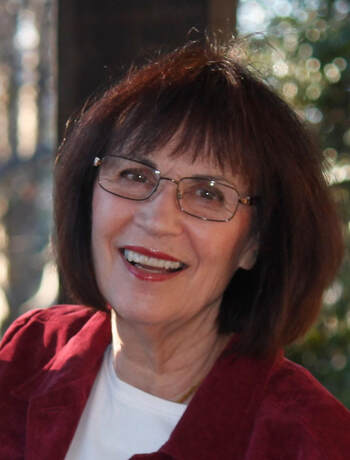
A Question of Values:
How they Operate for Both Feeling and Thinking Types
Presented by Sandra Nelson, M.A.
Saturday, May 28th, 2022
9:00 a.m. - 12:00 p.m. PDT
The really fundamental questions of our lives are not questions of fact or finance, but questions of value. What is worth striving for? What makes life worth living? Do Thinking types have values? Of course they do, but Thinkers often hold values that are different in quality and kind than Feeling types. They may, however, be less conscious of how values influence their decisions. Even Feeling types, may not be as aware as they might be about their decision-making process. Whether we have a preference for Thinking or Feeling, values form the foundation of our life choices and the basis of our self-esteem. They have a powerful motivational component, and they guide our actions on a daily basis.
In this workshop we will:
Following registration for the program, participants will receive an email with information to join the virtual presentation on Zoom.
How they Operate for Both Feeling and Thinking Types
Presented by Sandra Nelson, M.A.
Saturday, May 28th, 2022
9:00 a.m. - 12:00 p.m. PDT
The really fundamental questions of our lives are not questions of fact or finance, but questions of value. What is worth striving for? What makes life worth living? Do Thinking types have values? Of course they do, but Thinkers often hold values that are different in quality and kind than Feeling types. They may, however, be less conscious of how values influence their decisions. Even Feeling types, may not be as aware as they might be about their decision-making process. Whether we have a preference for Thinking or Feeling, values form the foundation of our life choices and the basis of our self-esteem. They have a powerful motivational component, and they guide our actions on a daily basis.
In this workshop we will:
- Clarify misconceptions around how Thinkers weigh emotional content in making decisions
- Clarify misconceptions around the feeling function and emotions
- Take the Rokeach Values Survey, the most researched values instrument published
- Learn how values impact your life cognitively, affectively and behaviorally
- Explore the relationship of your chosen values to your type preferences
- Become more conscious of how your preferred values serve you in making choices
Following registration for the program, participants will receive an email with information to join the virtual presentation on Zoom.
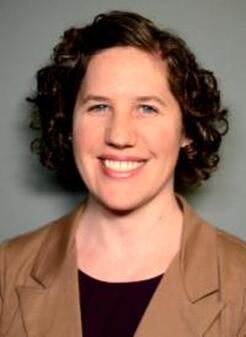
Past Program
A Tale of Two Types:
Exploring the Intersection of the MBTI and the Enneagram
Presented by Virginia Thomas, Ph.D.
April 2022
The MBTI examines personality through the lens of functions and attitudes, exploring how we process information, make decisions, and orient ourselves to the world around us. The Enneagram views personality as a style of attention, grounded in one of three emotional centers that dominate the personality. What happens when the two systems are combined? This workshop explores how our self-understanding is enriched by taking into account both type preferences (MBTI) and patterns of emotional attention (Enneagram). After reviewing the nine Enneagram patterns, we will overlay Jungian typology onto the Enneagram to explore how the two systems interact to form a more comprehensive picture of your personality. Note that a large component of this workshop will be discussion-based and assumes participants have a basic knowledge of both the Enneagram and MBTI systems.
Following registration for the program, participants will receive an email with information to join the virtual presentation on Zoom.
Virginia (Gina) Thomas, Ph.D. is an assistant professor of psychology at Middlebury College, Vermont. Gina is qualified to administer the MBTI® and is a certified teacher of the Enneagram, trained in the Narrative Tradition with Helen Palmer and David Daniels. She earned her doctorate in developmental psychology from the University of California, Santa Cruz, and holds a master's degree in depth psychology from Sonoma State University. Her current research and teaching focus on the intersection of solitude, personality, identity, and emotional development. Gina especially enjoys exploring how the MBTI and Enneagram complement each other as windows into the personality, and has worked with individuals and organizations utilizing both of these systems.
Gina publishes her research in academic journals and writes a blog for Psychology Today:
https://www.psychologytoday.com/us/blog/solitude-in-social-world
A Tale of Two Types:
Exploring the Intersection of the MBTI and the Enneagram
Presented by Virginia Thomas, Ph.D.
April 2022
The MBTI examines personality through the lens of functions and attitudes, exploring how we process information, make decisions, and orient ourselves to the world around us. The Enneagram views personality as a style of attention, grounded in one of three emotional centers that dominate the personality. What happens when the two systems are combined? This workshop explores how our self-understanding is enriched by taking into account both type preferences (MBTI) and patterns of emotional attention (Enneagram). After reviewing the nine Enneagram patterns, we will overlay Jungian typology onto the Enneagram to explore how the two systems interact to form a more comprehensive picture of your personality. Note that a large component of this workshop will be discussion-based and assumes participants have a basic knowledge of both the Enneagram and MBTI systems.
Following registration for the program, participants will receive an email with information to join the virtual presentation on Zoom.
Virginia (Gina) Thomas, Ph.D. is an assistant professor of psychology at Middlebury College, Vermont. Gina is qualified to administer the MBTI® and is a certified teacher of the Enneagram, trained in the Narrative Tradition with Helen Palmer and David Daniels. She earned her doctorate in developmental psychology from the University of California, Santa Cruz, and holds a master's degree in depth psychology from Sonoma State University. Her current research and teaching focus on the intersection of solitude, personality, identity, and emotional development. Gina especially enjoys exploring how the MBTI and Enneagram complement each other as windows into the personality, and has worked with individuals and organizations utilizing both of these systems.
Gina publishes her research in academic journals and writes a blog for Psychology Today:
https://www.psychologytoday.com/us/blog/solitude-in-social-world

Previous Program
Workshop with Markey Read
Topic: Inclusive Decision Making
Saturday, March 5th @ 9:00 am - 12:00 pm PDT
Making inclusive decisions is a challenge when some voices are not represented. Markey has updated the Z-Model for decision making to reflect how real-time discussions happen and provides a dynamic model for including a wider range of perspectives no matter who is present. Many discussions go awry because of competing core needs of the people around the table. Inclusive decision making shifts the energy from competition to collaboration. Using an eight-function approach to decision making, Markey engages people in creating higher engagement, making more effective decisions, and reducing the amount of time spent in meetings. Come join the fun!
About Markey
Markey Read, of MRG, Inc., is an internationally recognized trainer and consultant, whose innovative approach to Team and Project Leadership through the lens of Personality Type has established her as a thought leader. She specializes in creating more productive and effective work environments.
She has 25+ years of experience in coaching, training, developing, and implementing dynamic leadership teams with attention to leadership succession, emerging leaders, and team dynamics. She is a sought-after keynote speaker and trainer in the US and UK and she has successfully facilitated entrepreneurial companies and international corporations in transforming their organizational cultures. Visit https://mrgrp-us.com/ to learn more.
Markey is also the author of Leadership Styles, Acting on Informed Decisions; and Charting the Course & Landing the Job. She is Certified in Myers Briggs Type Indicator, FlexTalk, and Emotional Intelligence. She holds a Master’s Degree in Leadership and Group Dynamics from University of Vermont.
Workshop with Markey Read
Topic: Inclusive Decision Making
Saturday, March 5th @ 9:00 am - 12:00 pm PDT
Making inclusive decisions is a challenge when some voices are not represented. Markey has updated the Z-Model for decision making to reflect how real-time discussions happen and provides a dynamic model for including a wider range of perspectives no matter who is present. Many discussions go awry because of competing core needs of the people around the table. Inclusive decision making shifts the energy from competition to collaboration. Using an eight-function approach to decision making, Markey engages people in creating higher engagement, making more effective decisions, and reducing the amount of time spent in meetings. Come join the fun!
About Markey
Markey Read, of MRG, Inc., is an internationally recognized trainer and consultant, whose innovative approach to Team and Project Leadership through the lens of Personality Type has established her as a thought leader. She specializes in creating more productive and effective work environments.
She has 25+ years of experience in coaching, training, developing, and implementing dynamic leadership teams with attention to leadership succession, emerging leaders, and team dynamics. She is a sought-after keynote speaker and trainer in the US and UK and she has successfully facilitated entrepreneurial companies and international corporations in transforming their organizational cultures. Visit https://mrgrp-us.com/ to learn more.
Markey is also the author of Leadership Styles, Acting on Informed Decisions; and Charting the Course & Landing the Job. She is Certified in Myers Briggs Type Indicator, FlexTalk, and Emotional Intelligence. She holds a Master’s Degree in Leadership and Group Dynamics from University of Vermont.

Previous Program
Workshop with Joyce Meng
Topic: Using Behavioral Cues to Identify Type
January 22nd
9am-12pm Pacific Time
Have you ever wondered how to spot a person’s dominant and inferior function? This workshop is designed to give you some tricks and tips to help identify them both when working with clients and in everyday life.
I’ll begin by walking you through the theory of how each cognitive function operates in the dominant and inferior position. I’ll then teach you how to interpret the behavioral cues that typically manifest within individuals based on their dominant and inferior functions. By the end of the session, you’ll have some practical guidelines to takeaway to help you figure out anyone’s type.
About Joyce:
Joyce is a multi-disciplined typology practitioner, coach and profiler, and the founder of TypeTalks.
A certified MBTI® Master Practitioner, master NLP practitioner, and certified Gallup® CliftonStrengths coach, Joyce entered the world of typology and coaching to fulfill her love for helping others and her passion for psychology. Her business was founded upon the community of type enthusiasts she created through her YouTube channel, TypeTalks.
In her practice, Joyce blends together her spiritual philosophy of holding the unseen facets and needs of every individual as both beautiful and sacred, with her multi-disciplined approach to adopting a wide range of typology systems and tools. The result is nurturing soul development facilitated by deep wisdom and insight.
Together with Susan Storm of Psychology Junkie, Joyce has co-created an INFJ Inspired Mentorship Program - a program designed to provide insight, coaching and ongoing community specifically for INFJs.
Joyce has developed her own type theory and framework, which she plans to share through her upcoming book and website.
Profiling and coaching with Joyce:
To get typed by Joyce or request her coaching services you can book a session here.
Joyce offers the following options:
Typing session with Joyce and another profiler - $70
Coaching session with Joyce (once you know your MBTI® type) - $40 per hour
Get in touch with Joyce:
YouTube - https://www.youtube.com/c/JoyceMeng22
Email - [email protected]
Twitter - https://twitter.com/JoyceMeng22
Previous Program!
Webinar with Linda Berens, Ph.D.
Intentional Styles: The Fourth Lens
Provided by SacAPT
Saturday, December 4th, 2021
10:00am-1:00pm PT
Webinar with Linda Berens, Ph.D.
Intentional Styles: The Fourth Lens
Provided by SacAPT
Saturday, December 4th, 2021
10:00am-1:00pm PT
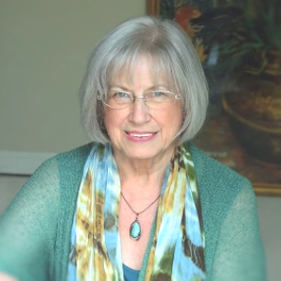
From Linda Berens:
I often wondered why someone with ISFJ preferences would look more like INTP than ISFJ. I also noticed that a person with ISFP preferences and another person with INTJ preferences seeming to ‘vibrate’ in sync in meetings. So what was up with that?
You may be familiar with the common three ways of looking at type in a multiple model approach to type—Cognitive Dynamics (aka 8 Functions), Interaction Styles, and Essential Motivators (aka Temperament). Now there is a fourth lens that will give you more ways to verify best fit, get at conflict, and increase mutual understanding and respect for yourself and your clients, friend, family, and workmates.
We will explore this relatively new typology model that can explain these similarities. Discover the essential qualities of the four Intentional Styles: Enhancing, Orchestrating, Customizing, and Authenticating so you can do more with type.
I often wondered why someone with ISFJ preferences would look more like INTP than ISFJ. I also noticed that a person with ISFP preferences and another person with INTJ preferences seeming to ‘vibrate’ in sync in meetings. So what was up with that?
You may be familiar with the common three ways of looking at type in a multiple model approach to type—Cognitive Dynamics (aka 8 Functions), Interaction Styles, and Essential Motivators (aka Temperament). Now there is a fourth lens that will give you more ways to verify best fit, get at conflict, and increase mutual understanding and respect for yourself and your clients, friend, family, and workmates.
We will explore this relatively new typology model that can explain these similarities. Discover the essential qualities of the four Intentional Styles: Enhancing, Orchestrating, Customizing, and Authenticating so you can do more with type.
Learning Objectives
- Identify the commonalities of the four type patterns within each Intentional Style and why they make sense
- Recognize the core drives, intentions, talents, and stressors of each Intentional Style
- Identify ways to put this model to use in their different areas of practice, such as Coaching, Teambuilding, Career Development, and more
- Identify ways to use this lens to help people clarify their type
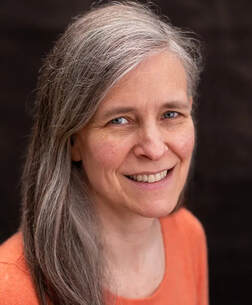
Previous Program:
Katherine Hirsh
At Play Among the Opposites:
Archetypal Energies in Animus and Anima
Provided by Dallas/Ft.Worth
Saturday, October 16th, 2021
8:00am-11:00am PT
Jung chose the inner feminine (anima) and inner masculine (animus) as key symbolic representations of the “not-me” aspects of self. They appear in our dreams, as projections, and have been linked to our typology via the Inferior Function. Given gender roles and gender identification are now seen as more about options and continua than givens or binaries, how should we re-imagine these figures for our own time? Let’s explore how we can take this idea of an energetic and evolving relationship to the “other” and ground it in concepts that speak to each of us in terms of growth, renewal, and regeneration rather than restricting or inhibiting our development.
Pre-Work:
“The animus and anima should function as a bridge, or a door, leading to the images of the collective unconscious, as the persona should be a sort of bridge into the world.”C.G. Jung, Unpublished Seminar Notes. “Visions” I, p.116 as cited in C.G. Jung, Memories, Dreams, Reflections, p. 392
How do you feel you connect to the collective unconscious? How do you feel you connect to the world? Find or construct an image to represent your persona and how it connects you to the world and a second to represent your animus/a and how it connects you to the collective unconscious. You may find it helpful to use the bridge and/or the door mentioned by Jung as inspiration for creating your images.
Pre-Work:
“The animus and anima should function as a bridge, or a door, leading to the images of the collective unconscious, as the persona should be a sort of bridge into the world.”C.G. Jung, Unpublished Seminar Notes. “Visions” I, p.116 as cited in C.G. Jung, Memories, Dreams, Reflections, p. 392
How do you feel you connect to the collective unconscious? How do you feel you connect to the world? Find or construct an image to represent your persona and how it connects you to the world and a second to represent your animus/a and how it connects you to the collective unconscious. You may find it helpful to use the bridge and/or the door mentioned by Jung as inspiration for creating your images.

Previous Program:
Cash Keahey
LeaderTypes in the White House: How Type Shapes
Presidential Leadership Styles
Saturday, May 22nd, 2021
9:00am-12:00pm PST
Cash Keahey
LeaderTypes in the White House: How Type Shapes
Presidential Leadership Styles
Saturday, May 22nd, 2021
9:00am-12:00pm PST
Together we will explore the concept of leadership—and presidential leadership in particular. Using examples from Eight LeaderTypes in the White House: Discover and Leverage Your Oval-Office Leadership Style, we’ll compare them to more recent Presidents. Our discussion will hopefully uncover some of the challenges in typing public figures, as well as reveal some potential biases and preferences involved in choosing leaders. Finally, we’ll look at how type development matters, and how each President’s type—and their development—impacts their way of leading.
Following registration for the program, participants will receive an email with information to join the virtual presentation on Zoom.
Cash Keahey is a global leader-architect, having facilitated hundreds of workshops around the world, teaching thousands of leaders in 21 countries on six continents. Having spent 20+ years in diverse functions (sales, marketing, management, strategic planning, HR) and industries, Cash understands the fundamental challenge every leader faces: how to get things done through others. His niche is training and coaching new/emerging leaders on the front-lines of global, matrixed organizations.
Helping build better leaders is Cash’s mission. He believes self-awareness is key to leadership. Paraphrasing Jung, “Every leader is an exception to the rule...which requires you know the rule to which you’re an exception—your LeaderType.” With this self-knowledge, leaders build trust from the inside-out—first in themselves, and then among followers—and are thus able to leverage their natural leadership style to get results through people.
Qualified to administer the Myers-Briggs Type Indicator® (MBTI) in 1999 by Otto Kroeger and Janet Thuesen, Cash began immersing himself in Jung through several study groups (Centerpoint I & II, Myers-Spoto). He combined this type knowledge with research into 42 U.S. presidents, and developed eight LeaderType® profiles, finding a different dominant LeaderType in eight ‘great’ presidents. Cash received his MBA from the University of Houston, and has been a leader in the Association for Psychological Type International (APTi) for over 15 years, receiving the APTi Excellence in Leadership award in 2009. He is the proud father of 2 grown children, one a recently licensed therapist, and the other a middle school social studies teacher.
Together we will explore the concept of leadership—and presidential leadership in particular. Using examples from Eight LeaderTypes in the White House: Discover and Leverage Your Oval-Office Leadership Style, we’ll compare them to more recent Presidents. Our discussion will hopefully uncover some of the challenges in typing public figures, as well as reveal some potential biases and preferences involved in choosing leaders. Finally, we’ll look at how type development matters, and how each President’s type—and their development—impacts their way of leading.
Following registration for the program, participants will receive an email with information to join the virtual presentation on Zoom.
Cash Keahey is a global leader-architect, having facilitated hundreds of workshops around the world, teaching thousands of leaders in 21 countries on six continents. Having spent 20+ years in diverse functions (sales, marketing, management, strategic planning, HR) and industries, Cash understands the fundamental challenge every leader faces: how to get things done through others. His niche is training and coaching new/emerging leaders on the front-lines of global, matrixed organizations.
Helping build better leaders is Cash’s mission. He believes self-awareness is key to leadership. Paraphrasing Jung, “Every leader is an exception to the rule...which requires you know the rule to which you’re an exception—your LeaderType.” With this self-knowledge, leaders build trust from the inside-out—first in themselves, and then among followers—and are thus able to leverage their natural leadership style to get results through people.
Qualified to administer the Myers-Briggs Type Indicator® (MBTI) in 1999 by Otto Kroeger and Janet Thuesen, Cash began immersing himself in Jung through several study groups (Centerpoint I & II, Myers-Spoto). He combined this type knowledge with research into 42 U.S. presidents, and developed eight LeaderType® profiles, finding a different dominant LeaderType in eight ‘great’ presidents. Cash received his MBA from the University of Houston, and has been a leader in the Association for Psychological Type International (APTi) for over 15 years, receiving the APTi Excellence in Leadership award in 2009. He is the proud father of 2 grown children, one a recently licensed therapist, and the other a middle school social studies teacher.
|
Previous Program:
Jane Kise, Ed.D. and Ann Holm, M.S. Coaching for Nature and Nurture via Personality Type and Saboteurs! Saturday, April 24th, 2021 9:00am-12:00pm PST Jung posed that our preferences for perception and judgment are innate. They're part of our nature. But we all know that people of each type show great diversity. The Positive Intelligence framework is a complementary way to add "nurture" for coaching. Developed by former Coach Training Institute Chairman Shirzad Chamine, the framework describes nine "saboteurs," behavior patterns we develop to ensure our needs for autonomy, belonging, and safety are met. They're a host of rotten characters such as Victim, Pleaser, Stickler and more. While type is innate, these saboteurs seem to develop in response to our environment. Take the Saboteurs Assessment in advance of the workshop. Then, together, we'll explore the Saboteurs framework and our research on correlations with personality type. Learn how a person's saboteurs might impede a client's identification of best-fit type as well as understanding of adult development pathways. And, through examples and breakouts to discuss case studies, explore how the use of saboteurs can enhance type-based coaching. Please note: To get the most out of this program, please complete the assessment before the program starts. Saboteurs | Positive Intelligence Jane Kise, Ed.D., MBA, CPQC is a past president of APTi, author of over 25 books, and a consultant with over 25 years of experience working with type concepts. Her passion involves doing anything ethical to help schools embrace type. She also does leadership coaching. Ann Holm, M.S., PCC, CPCC, CPQC, is a Professional Certified Coach specializing in executive, career, and personal development. She also has 25 years of experience in applied brain science, using her hands-on involvement to help her coaching clients understand how to stay focused, be engaged, and energized given the demands of the 21st century workplace. Together, they have been researching connections between type and saboteurs since 2015. Last year, they became certified as Positive Intelligence Coaches as part of the first cohort to take part in the process. Both are certified as MBTI Steps I, II and III master practitioners. |
|
Previous Program
Carol Shumate, Ph.D. Type and Body Language Saturday, March 27th, 2021 9:00am-12:00pm PST To see ourselves as others see us: This is the great gift of psychological type. Now, the wealth of videos available on the internet have made psychological type more visible than ever. In one of her most popular presentations, Carol uses videos to show participants how each type presents to others, as well as how to spot type clues at a glance. When we know how others view our type, our presentation style naturally moderates without effort. When we know how other types present, we can begin to distinguish between psychological type and character, which gives us a better radar for lies and manipulative tactics. Although we develop many of our opposite sides as we mature, the physical manifestations of type tend not to change as we mature. Therefore, paying attention to facial expressions, bodily movement, and speech patterns can help us identify an individual's earliest and most natural preferences, regardless of the reported type. Carol has correlated body language with the E/I scale, the J/P scale, and the eight Jungian functions (Si, Se, Ni, Ne, etc.) in a process she developed to teach her students to assess themselves and others. She uses videos of young people who are still exploring their personalities, so their type characteristics are exaggerated. These videos will have participants laughing at themselves and their type tribes, as they spot the clues to type with the aid of a proprietary handout drawn from Carol’s new book, Projection and Personality Development via the Eight-Function Model (Routledge 2021). Participants will also have the opportunity to share their own tips and tricks for recognizing type. Note: Not all 16 types can be presented in the time allotted, so the presentation will be limited to the types of the first dozen individuals to register, unless there is time for more. However, Carol will take requests if they are made ahead of time. Also note that some but not all of these videos were shown in February 2020 at a presentation for the San Diego APT. Carol Shumate, PhD (ENFP), teaches the course “Psychological Types” at Pacifica Graduate Institute, where she uses film and video to help students assess their own types. She is a founding editor of the journal Personality Type in Depth, https://typeindepth.com/authors/carol-shumate/ whose mission is to bridge psychological type and depth psychology. Her book Projection and Personality Development via the Eight-Function Model (Routledge 2021) shows how John Beebe’s eight-function/eight-archetype model of personality type can be used to provide a trajectory of development for each of the sixteen Myers-Briggs® types. |
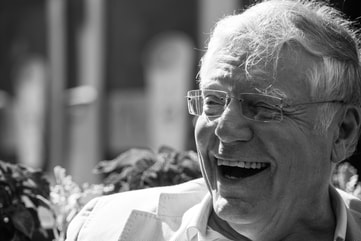
John Beebe is the creator of the eight-function, eight-archetype model of psychological types. A Jungian analyst and past president of the C. G. Jung Institute of San Francisco, he is the author of Energies and Patterns in Psychological Type: The Reservoir of Consciousness and co-editor, with Ernst Falzeder, of The Question of Psychological Types: The Correspondence of C. G. Jung and Hans Schmid-Guisan. John has spearheaded a Jungian typological approach to the analysis of film and has written the preface to the Routledge Classics edition of Jung's 1921 book, Psychological Types.

Adam Frey, an MBTI® Master Practitioner, has been studying Jung’s theory of psychological types for more than 35 years. A past president of the Bay Area Association for Psychological Type, Adam has published articles in Personality Type in Depth and the Bulletin of Psychological Type and has taught types to psychology students, human resources professionals, and the general public in the United States and China.
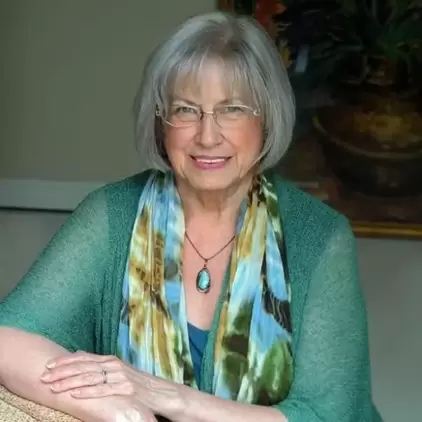
Previous Program
Linda Berens, Ph.D. Presents Type in Today's World: Ethics, Power, and Development October 3rd, 2020 9am-12pm PT Linda Berens and program participants will review significant developments in understanding individual differences and the importance of addressing major shifts in what the world needs from type practitioners:
About Linda Berens Linda V. Berens, Ph.D. serves as co-founder, lead architect of certification, model development and transformational change programs for InterStrength. She is a human and organizational development practitioner who has been teaching professionals since 1982 as well as helping individuals and teams recognize their strengths, transcend their weaknesses, and work more efficiently together. After founding Temperament Research Institute in 1983, a corporate consulting and training organization dedicated to individual differences, she turned her attention to developing a more complete and integrated look at individual differences through the Integral framework. Linda is recognized internationally for her theoretical contributions to the field of psychological type and for developing user-friendly training materials for practical application of understanding individual differences. She is the author or co-author of multiple books and training materials. In addition to holding a license as a California Marriage and Family Therapist and a doctorate in psychology, she also holds certification as a Holacracy Facilitator and in Integral Transformative Leadership from Pacific Integral and the LIOS Graduate College at Saybrook University. Linda is the developer of a multiple lens approach to understanding individual differences. She also is the developer of the Interaction Styles lens to understanding how people tend to interact and influence. In 1994, she innovated experiencing the 8 Jungian functions to fully understand the type code during an MBTI® Qualifying program and has been on the leading edge of type since 1985. Click photos below to link to Interstrength Institute and Video of Interstrength Approach Overview. 
Previous Program:
Eve Delunas, Ph.D. Survival Strategies of the Four Temperaments During Stressful Times January 23rd, 2021 9am-12pm PT During times like the ones we are currently living, it can be helpful to recognize the different ways each of the four temperaments cope with extreme stress. In this program, we will review the range of survival strategies that Improvisers (SPs), Stabilizers (SJs), Theorists (NTs), and Catalysts (NFs) use when life feels overwhelming and there appears to be no relief on the immediate horizon. Come learn how and why individuals may turn to Blackmail, Complain, Avoidance, and Masquerade, and what we can do to help those who are in the "survival mode." Dr. Eve Delunas has over 40 years of experience in using the temperament model in clinical and organizational settings. She is the author of Survival Games Personalities Play, which describes how to use the temperament model to design and implement effective mental health treatment interventions. Her latest book is New Science, New Brain, New You—a do-it-yourself guidebook for clearing subconscious limiting beliefs and igniting your goals. Currently, Eve offers classes and individual sessions to identify and dissolve subconscious limiting beliefs, increase self-love, awaken intuition, and attract greater abundance of every kind. She can be found online at: evedelunas.com

Previous Workshop:
Virginia (Gina) Thomas, PhD How To Be Alone: Solitude During a Pandemic Saturday, February 27th, 2021 9:00am-12:00pm PST Choosing to be alone generally makes an experience of solitude enjoyable. However, the COVID-19 pandemic has forced many of us to be alone far longer than we’re used to. For others, the irony is that lockdowns have eliminated opportunities to be alone, as some of us are now “trapped” in close quarters with the people we live with. How can we successfully navigate this unique time and meet our competing needs for time alone and time with others? Join this workshop to learn about psychological research that outlines the skills people use to engage in positive solitude, defined as time spent alone that is rich in meaning and enjoyment. The workshop will include discussion around the experiences, opportunities, and challenges we each have when it comes to being alone, and we’ll explore how Type may be shaping our attitudes and behaviors around spending time by ourselves. Bio: Dr. Virginia (Gina) Thomas is an Assistant Professor of Psychology at Middlebury College in Vermont. With training in depth psychology and developmental psychology, Gina studies social and emotional development throughout the lifespan, focusing on the inner lives of individuals. Her current research explores the role of solitude in identity development and psychological well-being, and investigates the skills necessary to use solitude constructively. Gina publishes her research in academic journals and writes a blog about all things related to solitude for Psychology Today: https://www.psychologytoday.com/us/blog/solitude-in-social-world |
Programs |
Membership |
|
Visitors are welcome to attend our program events which are held between September and April. Visitors are welcome, members are free.
|
Want to become a member or renew your membership? Please visit our membership information page for details
|
|
Check out this year's Program Calendar to see what's coming!
|
Find us on facebook
|


